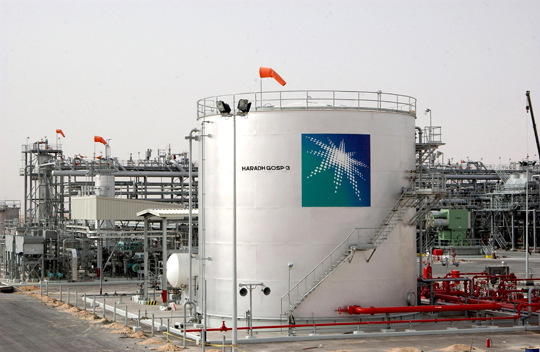Riyadh, Jan 27: Saudi Arabia’s oil giant expects oil prices to climb toward the end of the year, saying the current price of around $30 a barrel is not sustainable.
Saudi Aramco’s CEO Amin Nasser, speaking Tuesday at the 9th Global Competitiveness Forum, said there are indications that demand for oil picked up last year and that the gap between supply and demand has been shrinking, which could drive prices up.
Nasser would not give a precise price range. He said: "Our prediction is we will see some adjustment," though not a return to the $100 barrel range of two years ago.
Brent crude, a benchmark for international oils, was trading Tuesday at $31.13 a barrel in London.
Meanwhile, Housing Minister Majed Al-Hogail said 1.5 million housing units would be built throughout the Kingdom in the next seven years.
Al-Hogail was taking part in a panel discussion on “Low oil, high growth: Prospering in a low-oil era,” at the forum which concluded on Tuesday.
He said currently there is a need for about 1.5 million units, which are expected to be completed in seven years. He stressed that the ministry is currently working out details to provide affordable prices for the houses by benefiting from the low cost of building materials.
“We call on local and international real estate to pump in more investment for the housing projects which will demand some SR1.5 trillion during the next five years.” He said low oil prices would not affect the housing program in the Kingdom.
In a separate session, Education Minister Ahmed Al-Issa said his ministry plans to privatize some government schools, which would be run by establishments managed by academics. He was delivering the keynote address on “Perspectives on education in Saudi Arabia.”
He elaborated: “The selected public schools will run as independent institutions managed by small or medium-sized economic institutions headed by qualified educationists. The facilities, services, curriculum and the tutorial staff will be in accordance with the guidelines of the Ministry of Education.”
He pointed out that the ministry is working through three basic approaches to reform the education system in the country, which targets the student, the community and the country in general.






Comments
Add new comment